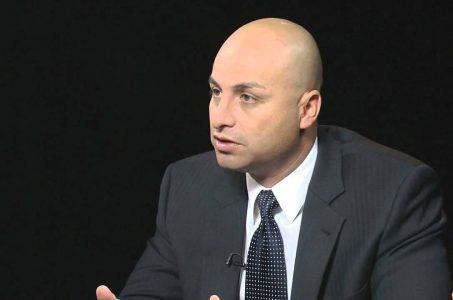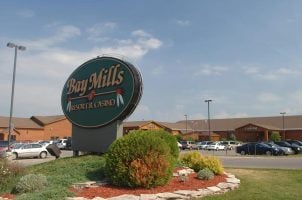Fred Dakota, ‘Grandfather of Indian Gaming,’ Dies at Age 84
Posted on: September 15, 2021, 01:05h.
Last updated on: September 15, 2021, 05:25h.
Fred Dakota, former chair of Michigan’s Keweenaw Bay Indian Community (KBIC), has died aged 84. Dakota was known by some as “the grandfather of Indian gaming” for his DIY casino operations and resulting legal battles.

In the 1980s, the father of five, who never made it past eighth grade, took on the federal government in court over the right of Michigan tribes to regulate gambling activities on their sovereign land.
According to the tribe, Dakota died Monday at his home in Baraga in Michigan’s Upper Peninsula.
His story is told in detail in an interview Dakota gave to My North in 2014.
Indigenous Gaming Pioneer
In 1976, the US Supreme Court ruled that states did not have the authority to tax tribes on reservations or to regulate their activities, provided those activities were not illegal under state law. This spurred many tribes in states across the US to establish bingo operations.
In 1980, with the aim of opening their own high-stakes bingo parlor, KBIC council members established their own bingo regulations. These were to be approved by the Bureau of Indian Affairs (BIA) and written into the tribe’s constitution. At the time, Dakota was president and CEO of the tribe.
The council added casino gaming into the mix, too — just to see what would happen. Knowing the BIA would take a while to respond, they added a provision that stipulated the request would be approved within two weeks if the department took no action. It didn’t disappoint.
Dakota would later argue in court this gave the tribe the right to issue gaming licenses on its land.
Building The Pines
Dakota decided to take things even further. After learning that the state of Michigan permitted casino gaming for a limited number of charitable events, he was pretty sure that meant he could open his own full-fledged casino. The rest of the tribal council was unconvinced, so he decided to go it alone.
Armed with a newly minted KBIC gaming license and a $10,000 loan from the bank, he converted his brother-in-law’s garage into a casino, The Pines. He built the blackjack tables himself and bought plastic chips from a local store. He and his wife learned how to deal the games and ran the operation themselves.
The Pines was an instant hit, so much so that by 1984 Dakota had leased land from the tribe and built a 3,200-square-foot casino. But some members of the tribal council disapproved of Dakota’s operations and called the US Attorney General’s Office.
The case went to court. Dakota’s argument was that tribes had the right to regulate legal activities and the KBIC had written regulations for casino gambling. And he had a casino license based on those regulations.
Paving the Way
Dakota lost and the Pines was shut down. But perversely, the court’s decision emboldened several other Michigan tribes to launch casino operations.
A crucial part of the verdict was that casino gaming was only permitted under Michigan law for nonprofit organizations, not private individuals or corporations. The tribes began to argue they were nonprofit organizations.
Dakota appealed, unsuccessfully, and planned to take the case to the US Supreme Court. But he ran out of money.
He may even have been successful in the highest court in the land. Just a few years later, the court ruled in favor of the Cabazon Band of Mission Indians of California, which used the same legal reasoning regarding its right to offer gaming.
Teacher and Elder
That decision led to the enactment of the Indian Gaming Regulatory Act, which codified Native American gaming and protected a tribe’s right to offer gaming on its sovereign land.
Dakota may have lost in court, but his actions helped kickstart a multibillion-dollar industry.
He was later elected tribal chairman, serving for 20 years, and fought to establish the KBIC’s Ojibwa Casino in Baraga.
In a statement, the tribe described him as a teacher and elder, a “passionate and courageous leader who was willing to take risks.”
Related News Articles
Most Popular
Genovese Capo Sentenced for Illegal Gambling on Long Island
NBA Referees Expose Sports Betting Abuse Following Steve Kerr Meltdown
UPDATE: Former Resorts World & MGM Grand Prez Loses Gaming License
VEGAS MYTHS RE-BUSTED: The Traveling Welcome to Las Vegas Sign
Most Commented
-
UPDATE: Whiskey Pete’s Casino Near Las Vegas Closes
— December 20, 2024 — 33 Comments -
Caesars Virginia in Danville Now Accepting Hotel Room Reservations
— November 27, 2024 — 9 Comments -
UPDATE: Former Resorts World & MGM Grand Prez Loses Gaming License
— December 19, 2024 — 8 Comments -
FTC: Casino Resort Fees Must Be Included in Upfront Hotel Rates
— December 17, 2024 — 7 Comments
















No comments yet